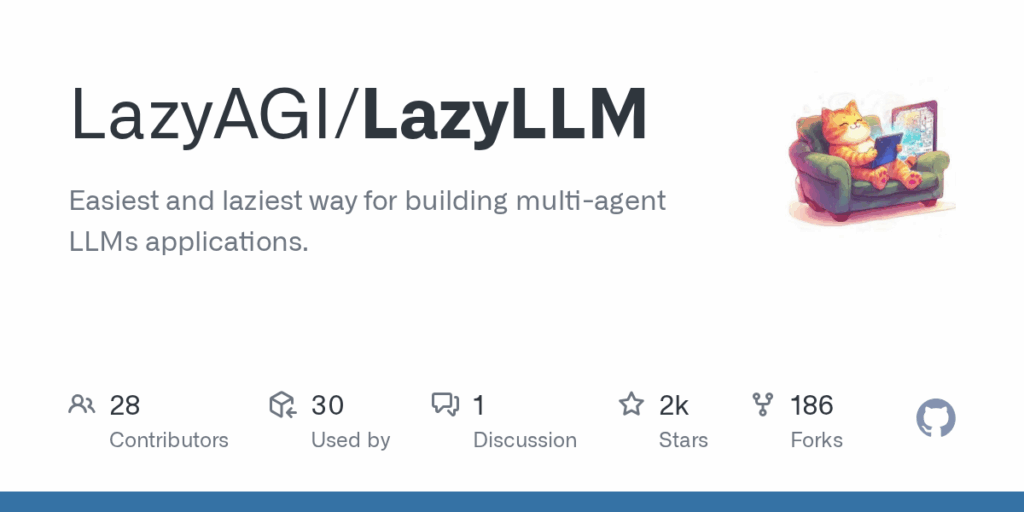LazyLLM
Basic Information
LazyLLM is a low-code development tool designed to help developers assemble, deploy, and iterate on multi-agent applications built around large language models. It provides a workflow oriented to rapid prototyping followed by data-driven feedback and iterative optimization, enabling teams to build chatbots, retrieval augmented generation systems, story writers, multimodal assistants, and other AI services using composable modules. The project unifies local and online model usage, supports both inference and fine-tuning, and exposes building blocks such as Components, Modules, and Flows to describe data streams and execution. It includes ready examples and high-level abstractions for document management, retrievers, rerankers, formatters, and web interfaces so users can create complex multi-agent pipelines with minimal boilerplate.








